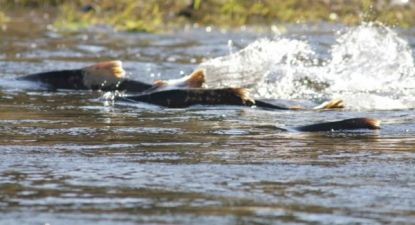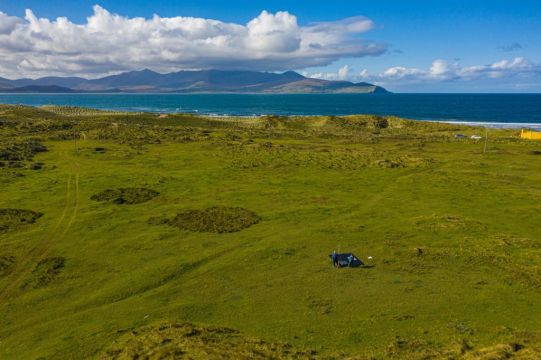An Irish team has secured €250,000 in EU funding for a drone project developing new ways to map and monitor threatened habitats.
The project hopes to automate the mapping of habitats that are under threat by using drones to survey areas - a move the teams says will save time and money compared to traditional techniques.
The team involves machine learning experts from CeADAR, the national centre for applied artificial intelligence, and drone specialists from ProvEye, a UCD spinout and private company that derives data from images collected by drones.
“This project is at the cutting edge of this research area as we look to test the ability of UAVs (drones) and satellites to map and monitor Ireland's most threatened habitats,” Dr Jerome O'Connell of ProvEye said.
These tools... have widespread implications for the protection of habitats in Ireland
“The team will build machine learning tools that can automatically map and monitor the status of these habitats over time, enabling the Irish government to fulfil its requirements under European law.
“These tools will be state of the art for such tasks and have widespread implications for the protection of habitats in Ireland and throughout the world.”
Fragile ecosystems
Threatened habitats need routine monitoring to assess their long-term sustainability and to discover what is causing them to be destroyed at such alarming rates, according to the team behind the project.
The European Union requires member states to periodically produce maps to monitor the status of protected habitats in Europe, as regular mapping results in information essential for the conservation of ecosystems.
The team says its machine learning model “offers the potential to map and monitor the botanical complexity of these fragile habitats in much more efficient ways” as traditional monitoring methods using “feet on the ground” is expensive and time-consuming.

“The research will be focused on the development of habitat mapping models based on deep learning, which is a subset of machine learning, inspired by how information is processed in biological systems,” Dr Oisín Boydell, principal data scientist at CeADAR said.
Biodiversity loss globally is estimated between 25 and 40 per cent, with over 75 per cent of the world’s land now having been changed by human activities.
Habitats are now under significant pressure from human activities, including conversion to agriculture and climate change.
The project has been co-funded by Enterprise Ireland and the European Union’s Horizon 2020 research and innovation programme under the Marie Skłodowska-Curie grant agreement.







